 |
Audio Asylum Thread Printer Get a view of an entire thread on one page |
For Sale Ads |
 |
Audio Asylum Thread Printer Get a view of an entire thread on one page |
For Sale Ads |
12.75.8.73
In Reply to: RE: Class A makes all the differences posted by AbeCollins on February 02, 2025 at 10:19:13
I have had the Aleph 3 and Aleph 30. Both were warm, but sounded a touch syripy. I have a little 30 watt AX30 Pass amp. Way cleaner, and more powerful. The 150.5 should easily sound better than those old Pass Pure A amps
Follow Ups:
And what you said supports my assertion that Class A is not universally better sounding than other classes of operation. It depends on the amp. Some Class A are excellent, others not so much. Which can be said of Class AB too.P.S. I had the Aleph 3 and the 30 too. Neither were very good unless you like that syrupy warm, smooth, slightly veiled sound, with rolled off frequency extremes, and very polite dynamics (no punch). Yet people rave about these amps because they're supposed to since they're from Nelson Pass. I scratched my head and said WTF [What's the Fuss] ?
Edits: 02/03/25 02/03/25 02/03/25
Your first sentence sums it up - it matter not what Class an amp uses, but the end result.
In my multi-amp home listening phase about 4 years ago (after deciding to move away from tube amps) I bought or borrowed Class A, AB and D amps in the 3-8K GBP price range. One of the Class A sounded great (Accuphase) but another (Sugden) sounded about as dull as any other amp apart from a Quad and (to my surprise and disappointment) the Benchmark that was so raved about by a fellow Avantgarde speaker user.
In the end, the choice was between the Class A Accuphase (a little too "polite"), the Class AB GamuT (great sound, but a bit naughty when powered up or down), or the Class D NAD M33. I chose this last amp (no regrets after 4 years), but have recently also bought Atma-Sphere Class D monos.
It's what they sound like that matters, not how they do their job.
tube -> class D
That was a big jump.
I went from a pair of lovely sounding Manley Neo-Classic 250 tube amps, 10 EL34 tubes per monoblock. Wanting to no longer deal with the heat, weight, and tube replacement costs I investigated various Class D amps. I went through a few Class AB solid-state amps too but over time I noticed that Class D amps were improving. The other more 'traditional' amps had already plateaued. There was nothing new there except even more creative hyperbole in the marketing literature. Anyway, fast forward a handful of years and I too wenttube -> class D, and with no regrets.
Repairing and retubing the Manley Neo-Classic 250 monoblocks
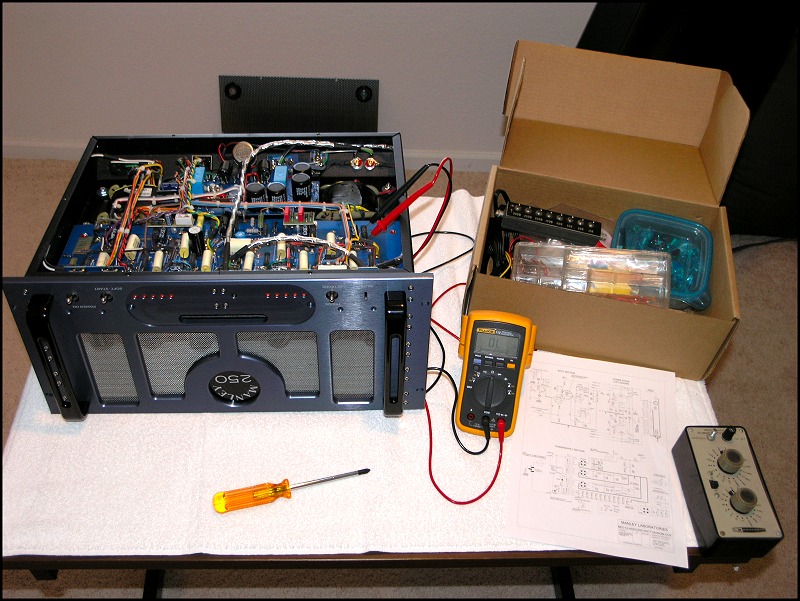
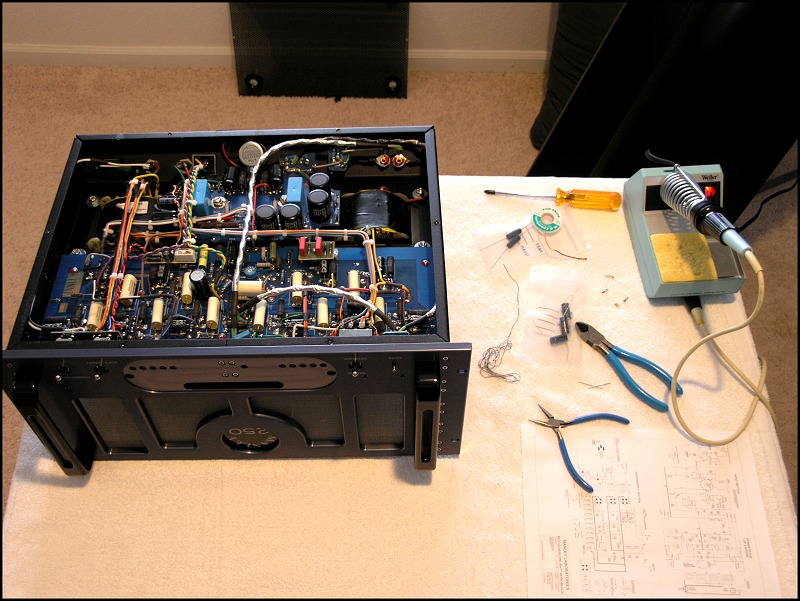
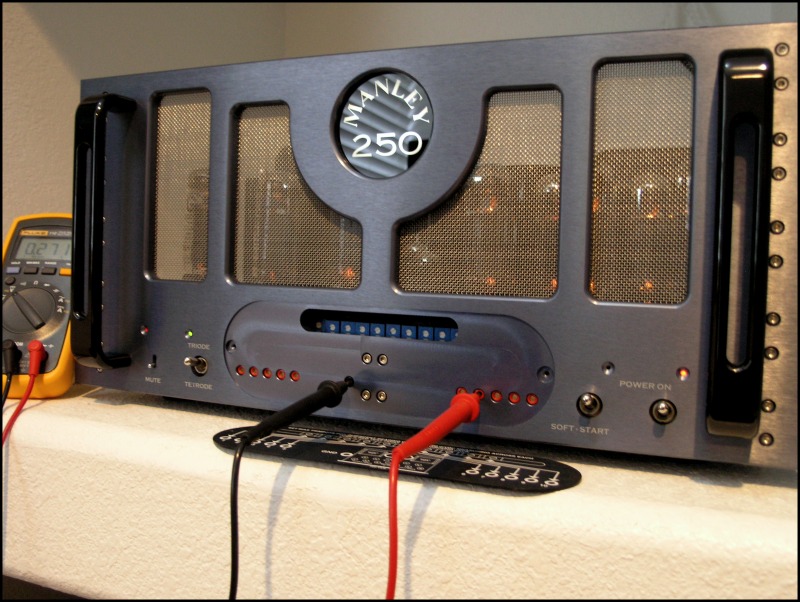
Tried a couple big boy Bryston amps. Big boy mistake.
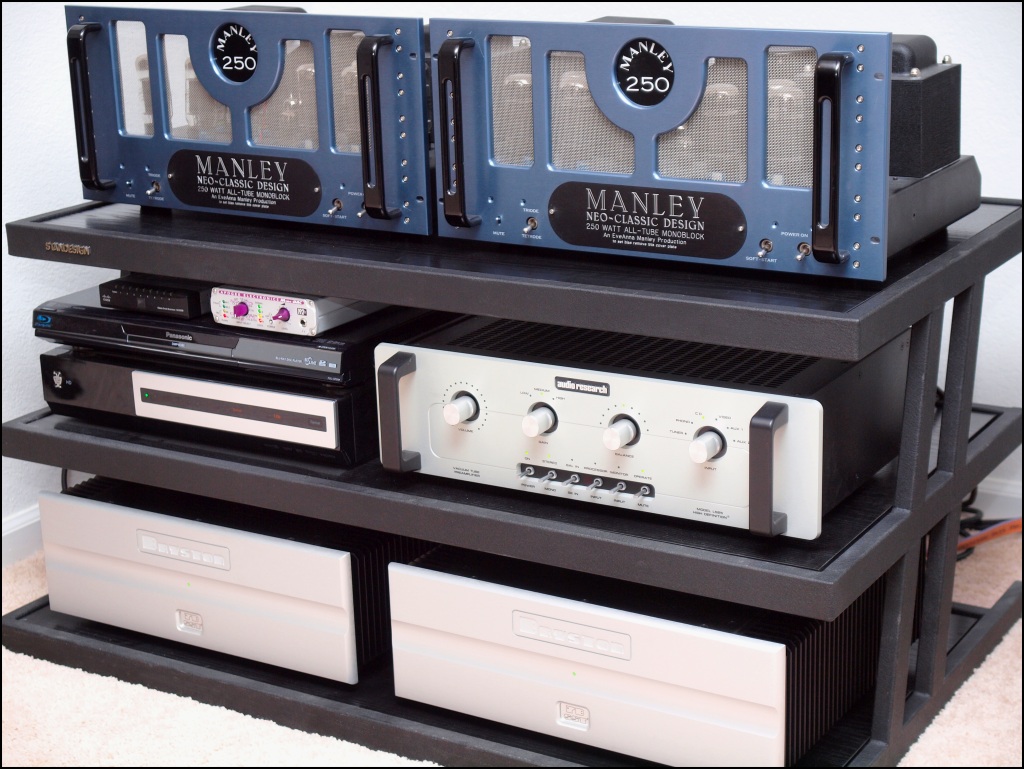
Manley tube monoblock & Wyred4Sound SX-500 Class D monoblock.
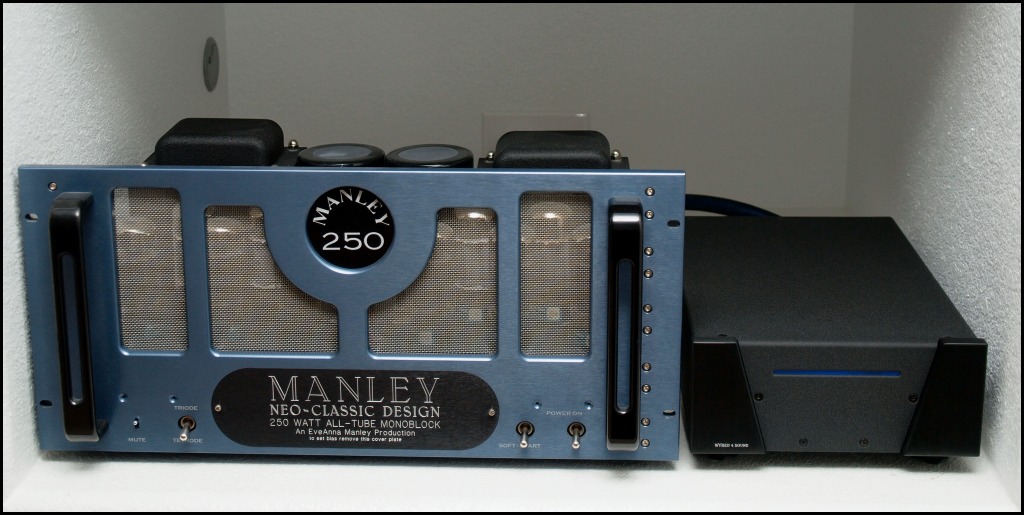
The Wyred4Sound Class D was very good but not quite there. However, I'd take these Class D monoblocks any day over the
Brystons. This was 14 years ago! Class D has improved noticeably since then. I'm sold.P.S. I was running Thiel speakers back then and they required big power to sound their best.
Edits: 02/04/25 02/04/25
.
.

Funny, your description of these two amps is exactly the same as mine. Not sure if "syrioy" is a real word, but that is what I heard. I bought the 30 as I was unhappy with they first one. Same results. But they both were praised in the rags. They reminded me of old tube sound before tube sound was refined.
Edits: 02/03/25
Interesting. I had the Aleph 3 and bought the Aleph 30 thinking it would be better but as you said, they were the same lackluster amps. The Aleph 3 would at least double power into 4 Ohms while the Aleph 30 would not.These were supposed to sound good. They're from Nelson Pass after all. But I thought they were pretty lame.
Aleph 3 :
30wpc 8-Ohms
60wpc 4-Ohms
Idle power consumption: 250-Watts from AC mainsAleph 30 :
30wpc 8-Ohms
50wpc 4-Ohms
Idle power consumption 200-Watts from AC mainsMy repurposed Pass Labs Aleph 3 Class-A amp
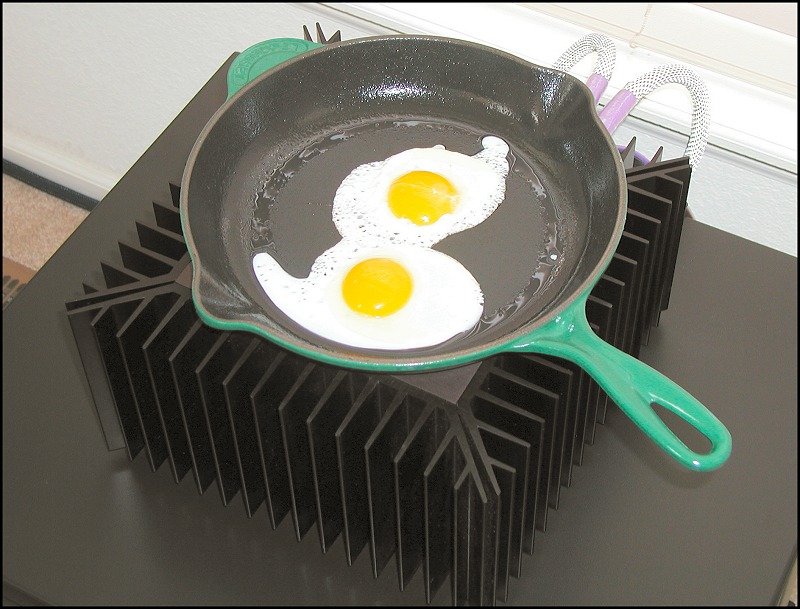
Edits: 02/03/25
I don't know what's wrong with Pass Labs class A amps. On my Plinius amp, there is a switch which can change between class A and class AB on the fly. Both classes can output 125W. In my system, class A sounds very noticeably better than class AB. No question about.
Define better. We all have personal tastes. I hope not to hear musical. That's a non answer. High fidelity isn't musical ; it's supposed to be accurate. The question in an audio world with imperfect devices is what compromises to make to come close to accurate. Is it frequency? Is it dynamics? Is it distortion? It's all the above and balancing them to some degree varies with each individual. I recall David Berning showing me an amp with variable feedback that sounded better the higher the distortion because the dynamics improved. Oh and the amp was almost pure class B.Your particular example of class A may be right for you. I'm not sure it is universal.
Edits: 02/02/25
| FAQ |
Post a Message! |
Forgot Password? |
|
||||||||||||||
|
||||||||||||||
This post is made possible by the generous support of people like you and our sponsors: